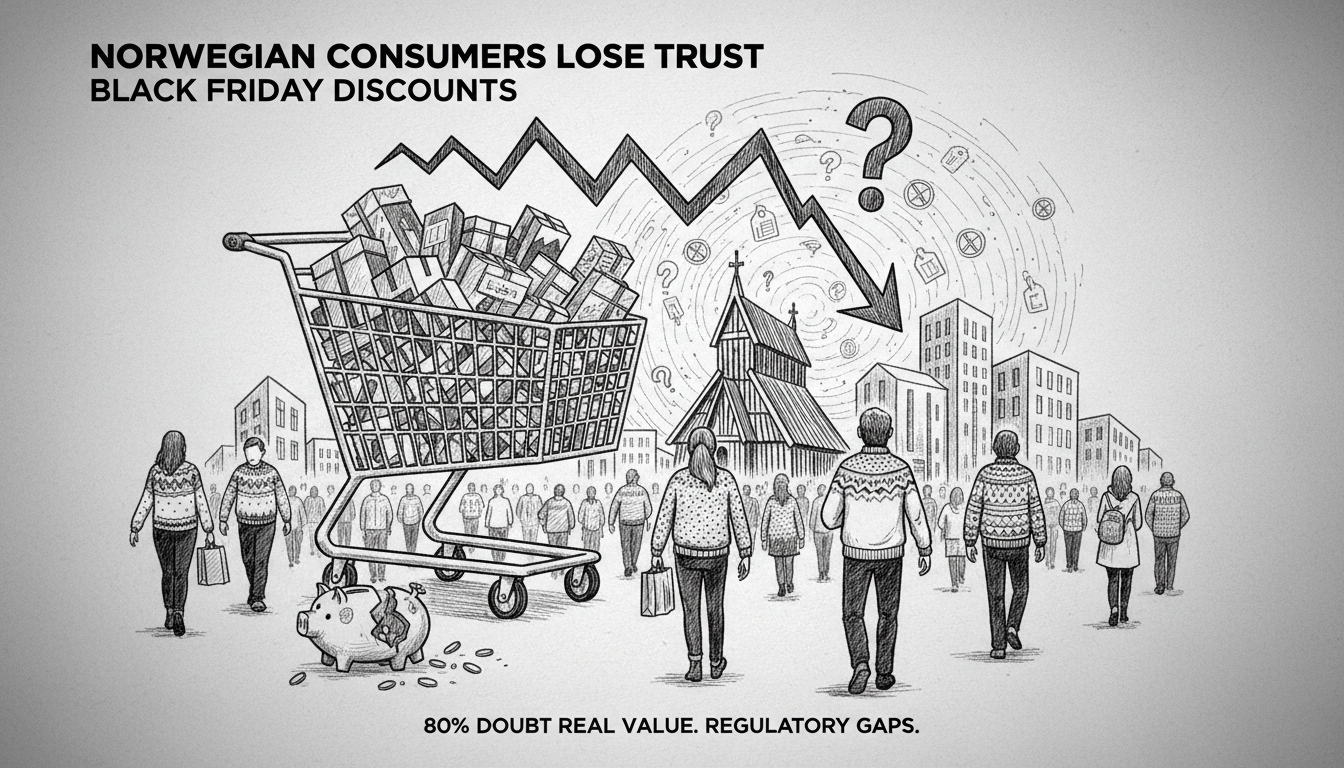Norwegian consumers increasingly distrust advertised discounts ahead of major shopping events like Black Friday. New research reveals widespread skepticism about whether sale prices represent genuine savings.
Thomas Iversen, a senior official at the Norwegian Consumer Council, expressed concern about the findings. He said consumer confidence in advertised discounts has declined since Norway implemented new pricing marketing rules in 2023. More people this year than last year doubt that the original prices stores claim are accurate.
Current Norwegian regulations require stores to show prices they maintained for 30 days before reducing them and marketing products as "on sale." This system creates problematic incentives for retailers. Many stores artificially inflate prices during the month before Black Friday. They then adjust prices downward to more normal levels during the sale month itself.
The Consumer Council believes the regulatory framework needs long-term improvements. Iversen suggested extending the pre-price period to 60 days. Alternatively, stores should be required to sell a certain number of products at the original price that forms the basis for the sale. This approach existed in previous regulations.
Norwegian consumer protection has traditionally been strong, but this pricing issue reveals gaps in current market oversight. The situation reflects broader European concerns about deceptive pricing practices during major sales events.
Meanwhile, Iversen encourages consumers to conduct their own price research. He advises shoppers to remain conscious when purchasing during Black Friday events. The official noted that an overwhelming 80 percent of Norwegians distrust whether discounts are real. This represents a substantial majority of the population that businesses should take very seriously.
The trust deficit affects both Norwegian consumers and legitimate businesses. When consumers cannot distinguish genuine discounts from marketing tricks, everyone loses. Honest retailers face unfair competition from those manipulating prices. Consumers may become cynical about all promotions, even legitimate ones.
This development comes as Norwegians face ongoing cost of living pressures. With household budgets stretched, consumers need to trust that advertised savings are real. The current situation undermines that trust and may discourage participation in seasonal sales that could provide genuine relief.
What does this mean for international readers and expats in Norway? The findings highlight the importance of price tracking before major sales. Consumers should use price comparison tools and maintain records of previous prices. Understanding local consumer protection laws also helps shoppers make informed decisions.
The Norwegian Consumer Council continues monitoring this situation. They plan to push for regulatory changes that would restore consumer confidence in retail pricing.

